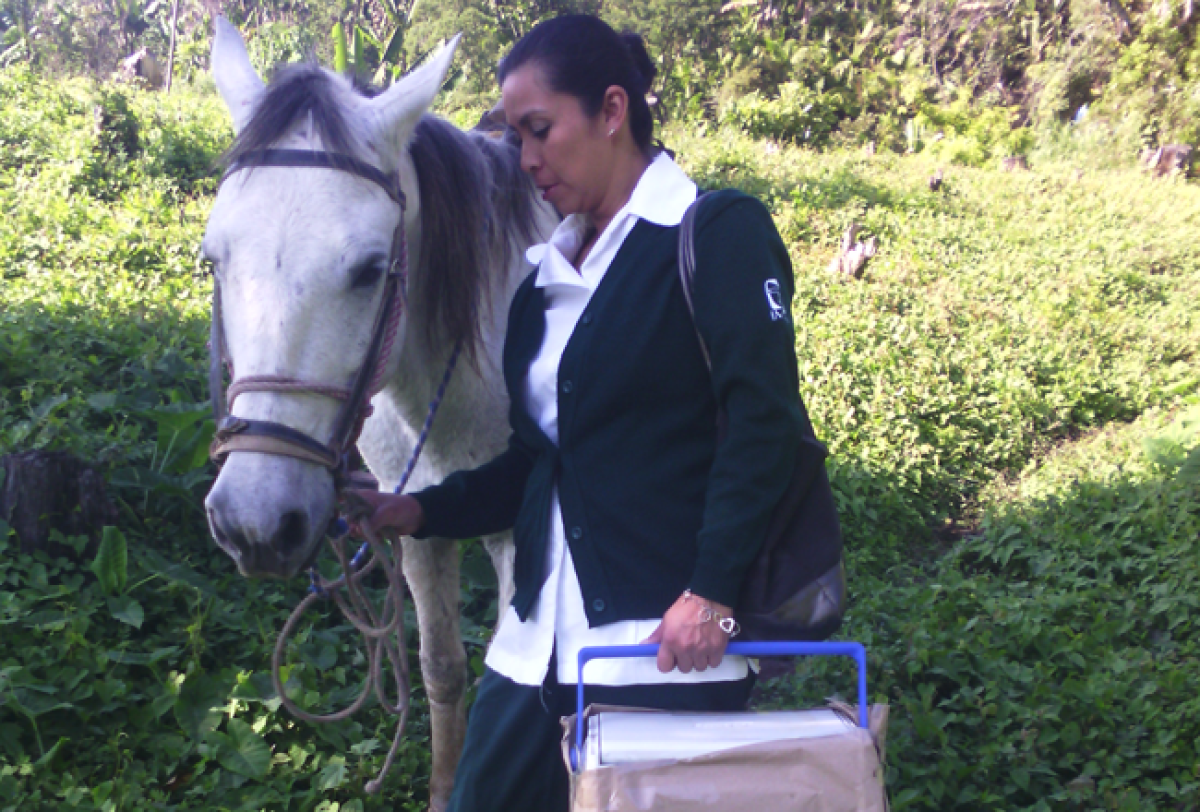Mexico's President Honors Chiapas Nurse
Posted on Jul 24, 2015

Mónica Córdoba isn’t the type to brag about the work she does. Since she was little, she’s wanted to take care of people. That desire translated into a nursing degree 17 years ago. She’s worked nearly ever since out of a clinic in her home community of Capitán, a rural village in the mountains of Chiapas.
But Córdoba is anything but typical. She has traveled up to 12 miles in a single day—by foot or donkey —up and down mountainous terrain and across rivers to visit patients in their homes. She’s vaccinated children. She’s checked on pregnant women. And she’s identified patients with tuberculosis and gotten them on treatment plans. It should be the work of an entire health care team, but she’s done it mostly by herself, with only occasional help from doctors who spent several weeks in the community before asking to be transferred to a less remote location.
In honor of her steadfast service, Córdoba was awarded the Lucia Salcido national nursing prize by Mexico’s President Enrique Peňa Nieto and Minister of Health Dr. Mercedes Juan at a ceremony on April 7 in Mexico City. The 40-year-old nurse was among 12 recipients nationwide who got a medal and cash prize in recognition of their efforts. Her picture even appeared in an article in the national newspaper La Jornada.
Córdoba says she couldn’t believe she won the award, claiming that other nominees had more education, specialization, and worldly experience.
But Dr. Nadia Sanchez could. “She deserves the prize,” says Sanchez, a social service doctor working with Compaňeros En Salud (CES)—Partners In Health’s sister organization in Mexico. She and Córdoba’s supervisor at the Ministry of Health nominated the nurse. “It doesn’t take into account where you study, if you are a professional, or are very specialized. It’s more a recognition of your work and effort.
“There had never been a (full-time) doctor in the community of Capitán until I arrived” in August, adds Sanchez, who is among 10 CES pasantes, or social service doctors, working alongside community nurses throughout Chiapas. “Monica always had done the work of a doctor and a nurse.”
Shortly after completing her exams in Tapachula, Córdoba married and moved to Capitán, where she has served for the past 15 years. Sanchez describes her colleague as responsible, energetic, and dedicated to service. The nurse checks vital signs at the clinic, conducts vaccination campaigns, helps her with consultations, treks along on home visits to five surrounding communities, and completes all patient paperwork.
Córdoba has taught the doctor how to properly care for patients far away from big, urban hospitals and to be always open to provide care—regardless of the time of day.
“It doesn’t matter if it’s late at night or 3 in the morning,” Sanchez says. “She is always available.”

